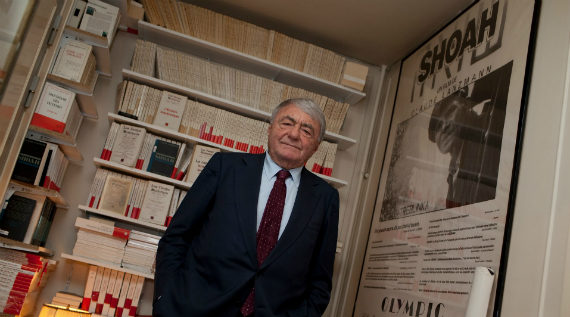
The documentary filmmaker Claude Lanzmann died last Thursday at the Saint-Antoine Hospital in Paris at the age of 92. He was best known as the director of the monumental work SHOAH, which John Pym called “a devastating and cautionary interrogation of the Holocaust through the testimony of both survivors and ‘functionaries’” in his original 1985 feature analysis of the film in Sight & Sound. His full and robust life story can not be summed up here, but a handful of elegant and thoughtful obituaries and memorials were published over the past few days by Daniel Lewis of The New York Times, Richard Brody in The New Yorker, Glenn Kenny at RogerEbert.com, AV Club’s Ignatiy Vishnevetsky, and Leslie Camhi of Vogue, who articulately summed up Lanzmann’s legacy and personality, “The fact that he was in love with life, and obsessed with death was only the most obvious of his many contradictions. He was deeply Jewish, and profoundly secular. He worked with the past but was relentlessly engaged with the present. A sometimes violent polemicist, he could also be very funny. He was the only man Simone de Beauvoir ever lived with, during the course of their nine-year love affair and the friendship that continued until her death in 1986. But he was, I believe it is safe to say, no feminist; he was known to share the alarming machismo of his generation. He believed in liberty.” In celebration of Lanzmann’s work, Film Comment reposted a conversation from 2015 between film critic J. Hoberman and filmmaker Joshua Oppenheimer in which they dissect the lasting impact of SHOAH on the Film Comment Podcast.





